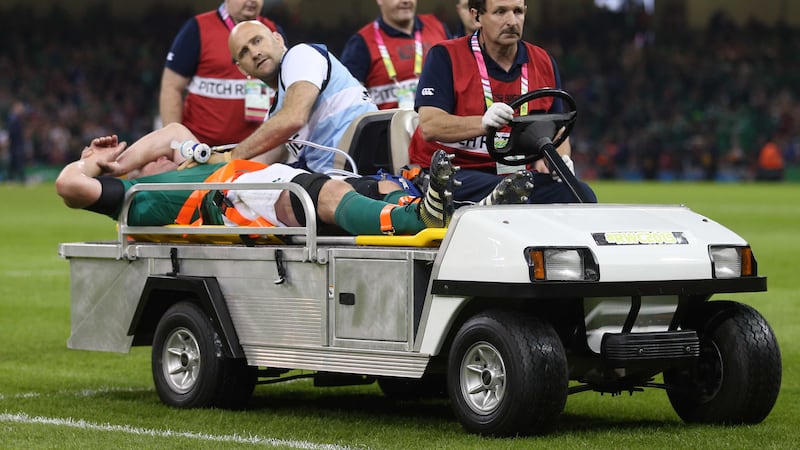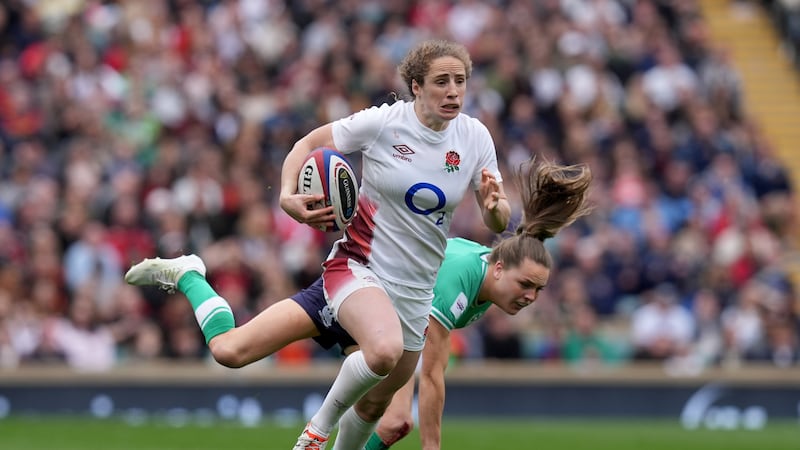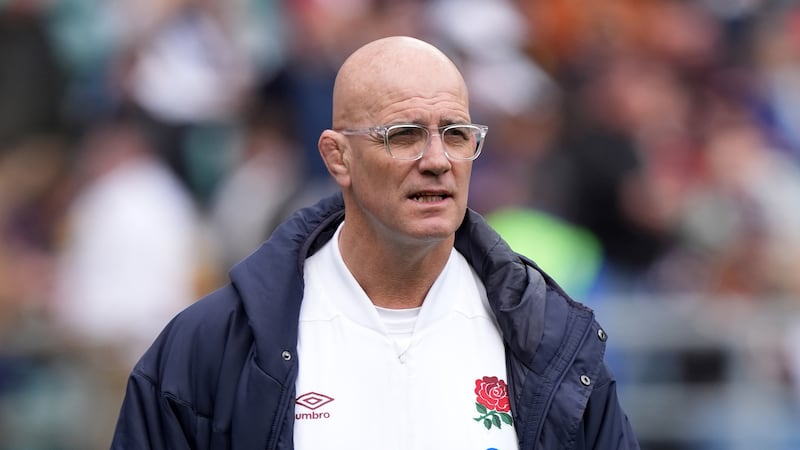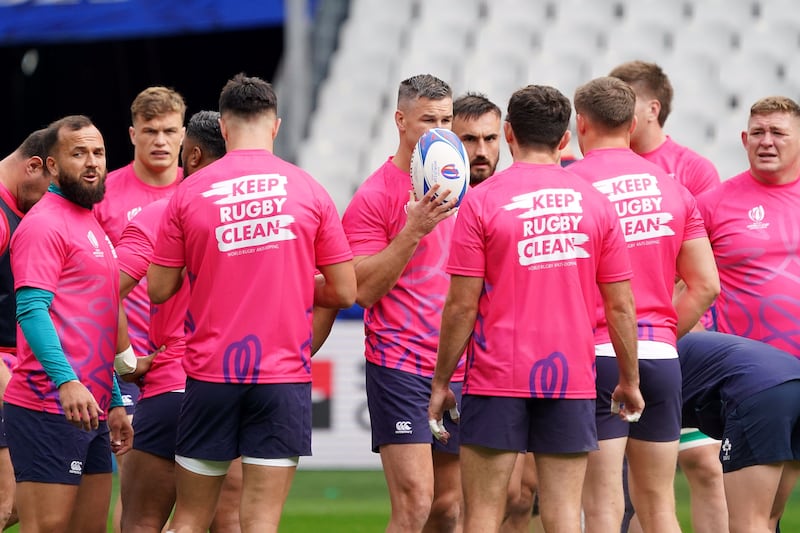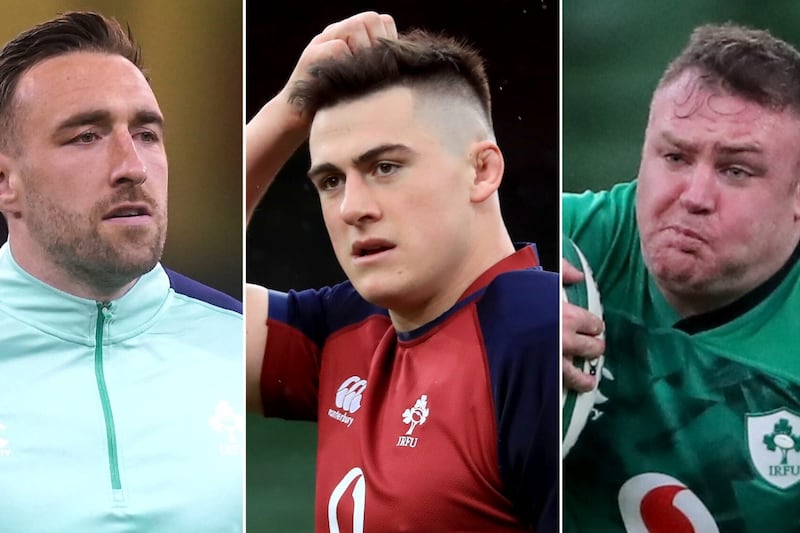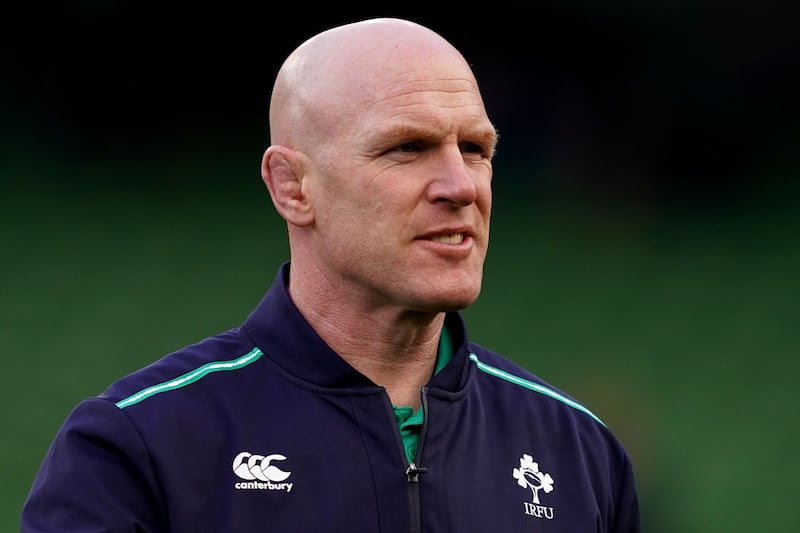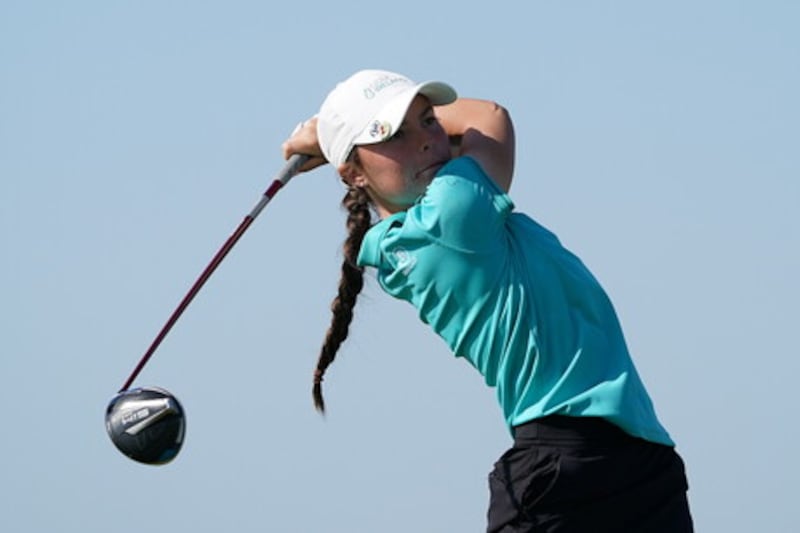TWO sharply contrasting images of the talismatic Paul O’Connell encapsulated a bitter-sweet year for the Ireland rugby team as Six Nations glory was followed by a disappointing quarter-final exit to Argentina at the World Cup seven months later.
In March, Ireland captain O’Connell joined his team-mates in a joyous celebration as he proudly lifted the Six Nations trophy after the most exciting finish to the tournament in history.
Any one of three teams could have claimed the title going into the final day with Wales, Ireland and England all in the frame ahead of a staggered match schedule as they prepared to take on Italy, Scotland and France respectively.
Ireland eventually prevailed after beating Scotland 40-15 at Murrayfield before O’Connell and his players watched as England failed to secure the required 26-point winning margin in a breathless 55-35 victory over France at Twickenham.
However, the ecstasy turned to agony for O’Connell as he was carried off the pitch after tearing his hamstring in the dying seconds of the first half of the 24-9 World Cup win over France on October 11 at Cardiff’s Millenium Stadium.
The injury signalled the end of the totemic Munster man’s international career after 108 caps and, seven days later, injury-ravaged Ireland’s World Cup was over thanks to a 43-20 defeat by the Pumas as a semi-final berth again proved elusive.
Hopes had been high going into the tournament that Ireland could make history by reaching the last four for the first time after completing back-to-back triumphs in the northern hemisphere competition for the first time since 1949.
Ireland had opened their Six Nations defence with a convincing 26-3 win over Italy in Rome in February, with Conor Murray and Tommy O’Donnell crossing the whitewash, and then defeated France 18-11 at the Aviva Stadium with out-half Johnny Sexton landing five kicks out of five.
England then travelled to Dublin and Sexton was again hugely influential in a 19-9 success, sending over four penalties and converting Robbie Henshaw’s try for a personal tally of 14 points.
Ireland led 9-3 at the break and a fourth Sexton penalty made it 12-3 before Henshaw collected Murray’s clever chip in the 51st minute and expertly stayed in play to touch down. Sexton added the extras before being forced off the field with a leg injury, but the damage was done and all England could muster in reply was a couple of late penalties.
Ireland’s Grand Slam hopes were dashed by a 23-16 defeat at the hands of Wales in Cardiff to spoil party on the day O’Connell won his 100th cap. It was the Welsh who were celebrating at the final whistle after Scott Williams came off the bench to claim the crucial second half score and seal the win.
After Leigh Halfpenny slotted over four penalties in-a-row to open up a 12w-0 lead, Warren Gatland’s side had to dig deep to hold on for a narrow victory in the end. Sexton’s boot had gradually closed the gap and a penalty try for Joe Schmidt’s side followed by incessant late pressure ensured a nervy finish but Wales held on to end Ireland’s 10-match winning streak.
Thanks to their victory over the Irish, Wales were in title contention as they travelled to Italy for the first game of the day on March 21. Wales ran in seven second half tries to thrash the Italians 61-20 which left Ireland needing to beat Scotland by 21 points to stay on course to retain their Six Nations crown.
After tries from O’Connell and Sean O’Brien helped Ireland into a 20-10 half-time lead, they were within sight of their goal and further touchdowns from Jared Payne and O’Brien, allied to Sexton’s heroics with the boot, made it 40-10 at the final whistle.
England were next into bat and they needed to beat France by 26 points to deny Ireland the trophy, but Les Bleus were in no mood to roll over as they led 15-7 after the first quarter. England rallied to lead 55-35 and, as the seconds ticked down, they needing a converted try to claim glory but they fell just short despite being camped in the French 22 at the final whistle.
Ireland were crowned champions after a simply amazing day which saw 221 points scored, with 27 tries in total across the three games.
AND so to the World Cup, which kicked off in September with Ireland aiming to win Pool D and therefore avoid New Zealand in the quarter-finals.
They began with a seven-try 50-7 demolition of Canada, and scored five more touchdowns in beating Romania 44-10 before recording an edgy 16-9 win over Italy. That victory was enough to clinch a place in the last eight but they needed to beat France at the Millenium Stadium to avoid the All Blacks.
That they did, but their 24-9 success, in which Rob Kearney and Murray scored half tries, was achieved at a huge cost as Sexton went off after 25 minutes with a groin problem and O’Connell followed him after that agonising hamstring injury.
Worse was to follow as Peter O’Mahony was forced to retire in the second-half and, with Payne already on the casualty list, Seán O’Brien was suspended for the Argentina game for aiming a punch at Pascal Pape early in the game.
None of the injury victims recovered in time for the quarter-final in which the Pumas, playing with pace and width, took a 17-0 lead after only 13 minutes thanks to brilliant tries from Matias Moroni and Juan Imhoff.
Luke Fitzgerald, who had come on for Tommy Bowe as Ireland’s injury-list lengthened, scored a superb try to cut the margin to 20-10 by half-time. A Jordi Murphy touchdown reduced the gap to three points and Ian Madigan then missed a difficult chance to level the scores at 20-20.
However, late tries from Joaquin Tuculet and Imhoff sealed a deserved win for Argentina and left Ireland thinking about what could have been at the end of a year that promised so much.
